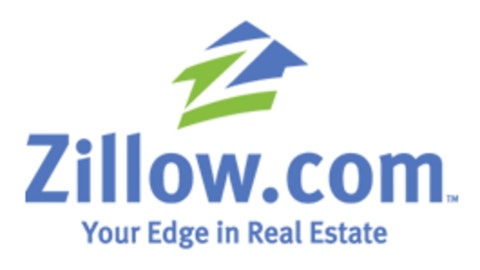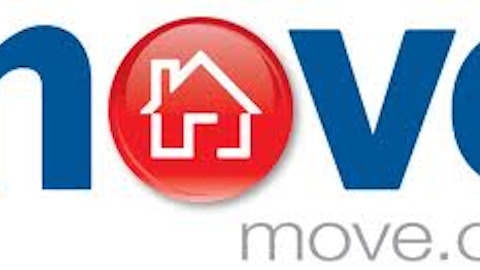Applications for new home sales increased by 14% in July to an estimated 43,000 new home sales despite mortgage rates rising in recent months. Also on the rise are real estate marketplace websites that connect buyers with sellers and lenders. This market opportunity is estimated to be $29 billion. Both Zillow Inc (NASDAQ:Z) and Trulia Inc (NYSE:TRLA) have been placed in the limelight within this industry after their surges in share prices this past year.
The business model
Zillow Inc (NASDAQ:Z) and Trulia Inc (NYSE:TRLA) follow very similar business models. In short, they act as real estate marketplaces serving homeowners, home buyers, sellers, renters, real estate professionals, and lenders of all types. Each company has a niche of secondary tools to help them stand out from each other.

Zillow Inc (NASDAQ:Z) highlights on its website that it is able to present homes not yet on the market. Trulia gives the user the ability to learn about agents, neighborhoods, schools, crime, and commute times. In the end, each company provides tools enabling their users to avoid driving around to homes that don’t exist yet or to research schools and crime rates in potential neighborhood choices.
Market valuation
Trulia Inc (NYSE:TRLA)’s IPO occurred in September of 2012 — over a year after Zillow Inc (NASDAQ:Z)’s July 2011 IPO. Year to date, Zillow and Trulia have seen their stocks soar 240% and 150%, respectively, as good news for one often becomes good news for the other.
| Zillow | Trulia | |
|---|---|---|
| Market Cap | $2.86 billion | $1.40 billion |
| Share Price Rise Since IPO | 177%+ | 70%+ |
| 52-Week Share Price Range | $23.00-$97.29 | $14.69-$48.40 |
Overpriced?
Analysts and investors are now debating whether their run-ups are justified. Second-quarter earnings showed a net income loss of $10.2 million for Zillow Inc (NASDAQ:Z), while Trulia Inc (NYSE:TRLA) saw a loss of $2.4 million. However, much of the losses for each company were caused by heavy investing in sales and marketing while expanding services with improvements.
Others criticize the intellectual property of each business, or lack thereof, which can open the door to bigger competitors in the future, like a Google or even an Amazon.com. While it wouldn’t be wise to count either of these big players out of the online real estate marketplace business, it isn’t something that would occur overnight, and users aren’t automatically going to switch services.
Is Move moving in or out?
Move Inc. (NASDAQ:MOVE) is often placed third behind Zillow and Trulia when it comes to the future of the online real estate marketplace. Its market cap is less about $580 million even though it went public over a decade ago, and today it manages nearly a dozen real estate portals. Additionally, it is not keeping pace with either Zillow or Trulia Inc (NYSE:TRLA) in terms of quarterly revenue growth on a year-over-year basis, or unique monthly users. If the trends continue, these metrics could foreshadow where Zillow Inc (NASDAQ:Z) and Trulia may be heading in terms of company valuation and — consequently — share price.
Revenue and user growth are king
Earlier in August, Zillow’s CEO stated that investors shouldn’t trade their stock based on EPS but should concentrate on revenue growth. Revenue growth opens up opportunities for reinvesting that revenue to expand the business. In acquiring more unique users, the web space owned by each company has more leverage to demand higher advertising fees, which increases future revenue growth. It should then be no surprise that all three companies are heavily spending on development, marketing, and hiring new employees.
However, user growth is also important, and that is where Move Inc. (NASDAQ:MOVE) falls short. Despite having more experience as a company, Move Inc. (NASDAQ:MOVE) has been passed in terms of unique monthly users this past year by both Zillow and Trulia. As more users flock to each site, that leaves fewer users for Move Inc. (NASDAQ:MOVE), and more importantly, it gives less incentive for their paying advertisers to pay their fees when they can move to either Zillow or Trulia to attract more potential customers.
Can Zillow and Trulia go higher?
As long as Zillow Inc (NASDAQ:Z) and Trulia Inc (NYSE:TRLA) can show revenue, membership, and paying subscription growth, they are capable of seeing much higher share prices. Whether net income stays negative or possibly swings to the positive is just an added bonus of owning any of these stocks. However, if any of these three companies show a surprise to the negative in any category, the other two will likely also suffer in share price.
Nevertheless, the Internet age can only help both in acquiring more users. It is much cheaper, convenient, and more efficient to browse potential homes from the comfort of your computer than it is to drive around town for hours to visit just a dozen or so homes, at most, per day.
However, brand name is everything. Within any industry — especially those related to the Internet based on history — there are dozens of competitors that have faded in the background, were bought out, or were shut down. For every Amazon.com, there have been many extinct competing businesses that very few even remember today. While it is nice to produce a positive net income in the early stages of a growing company, it limits the ability to increase company reinvestment costs when the window of opportunity in some cases is a matter of months, not years, to build a solid user base.
Brand name is why I believe the online real estate marketplace is a race between Zillow and Trulia. Move Inc. (NASDAQ:MOVE) is simply falling too far behind in terms of revenue and user growth, producing a gap that looks to only widen in the coming years.
The article Can Zillow and Trulia Go Much Higher in Share Price? originally appeared on Fool.com and is written by Michael Carter.
Michael Carter has no position in any stocks mentioned. The Motley Fool recommends Amazon.com, Google, and Zillow. The Motley Fool owns shares of Amazon.com, Google, and Zillow.
Copyright © 1995 – 2013 The Motley Fool, LLC. All rights reserved. The Motley Fool has a disclosure policy.




